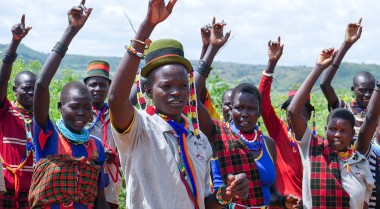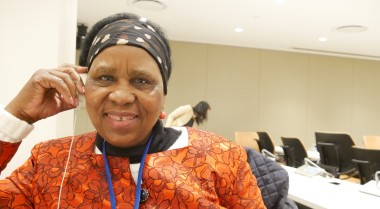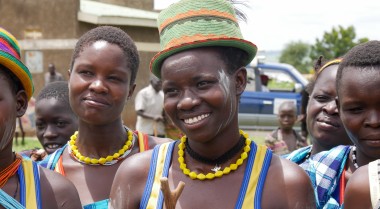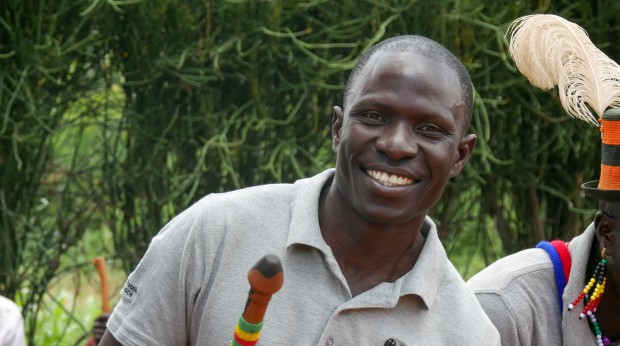
The Growing Crisis in Mozambique: Local Peacebuilders Response
Cabo Delgado, a province in the North of Mozambique is characterised by extremes. One could even say that two entirely different worlds exist alongside each other: one extremely rich and one extremely poor world. Cabo Delgado is the most mineral-rich region of Mozambique. Here, the Mozambique Liquefied Natural Gas (LNG) Project is run by French oil company Total, together with Mitsui & Co., ONGC Videsh, and several other companies. The project extracts natural gas from the region and is estimated to be worth over 60 billion dollars.
In the other world of Capo Delgado, the luxury of the oil-rich gives way to poor healthcare, weak educational systems, and bad road and service delivery facilities. Conflict prevention in this world of Capo Delgado is much needed. According to the Human Development Index, Capo Delgado is the least developed province of Mozambique. The current crisis that is unfolding in Mozambique, can partly be traced back to these contrasting worlds.
What is happening in Mozambique?
The province of extremes, Capo Delgado, has been a breeding ground for conflict. Since 2017, the region has been plagued by insecurity. Local residents, most notably youth, have raised the issue of having seen too little of the wealth from the ‘rich part’ of the province flow into their communities. On top of this, the Muslim north claims they feel neglected by the government, because the north is Muslim, whilst the majority of the country is Christian. In 2017, these grievances combined prompted an insurgency by a local youth group popularly known as Al Shabaab meaning “The Youth”.
Fast forward a couple of years and the situation in Mozambique has worsened. Compounded by both climate change and ever-escalating violent conflicts, the province’s economy has deteriorated. Production in agriculture crops, which is the key sector, has stopped. This has led to hunger and food insecurity, which in turn has resulted in a breeding ground for unhappiness, enabling Al Shabaab to gain followers. These insurgents have been committing terrorist attacks by executing mass killings which have led to mass displacements within the country but also beyond national borders. Consequently, psychological trauma, mass displacement, economic repercussions, and a decrease in social services are among the region’s detrimental developments. Schools and businesses have closed, there is a lack of decent shelter, and an increasing number of people need social support and counselling. The spill-over effects of the insurgents’ actions in Cabo Delgado are not only felt in Mozambique. Neighbouring countries, such as Malawi, Tanzania, and Zimbabwe, have also had to deal with the massive amounts of displaced persons coming their way to flee the atrocities happening in Northern Mozambique.
How are local peacebuilders and GPPAC members responding to the crisis in Mozambique?
Despite the fact that civic space is shrinking due to the conflict and the ties on the hands of local peacebuilders are pulled tighter they act as the first responders to the increasing violence in their country.
The creation of a regional coalition of Southern Africa GPPAC members and other like-minded organisations to formulate a collective regional strategy to the emerging violent situation in the country has been a successful initiative. This coalition is being led by the Southern Africa Partnerships for the Prevention of Conflict (SAPPC), the Regional representative CSO body of GPPAC. In line with creating a collective regional strategy is the development of a Regional Communique on the situation in Mozambique.
Local peacebuilders are also responding by engaging and strengthening partnerships and collaborations with the key SADC Secretariat departments, specifically on:
- Finalizing the Southern Africa Regional Youth Peace and Security Engagement Strategy which is to be co-developed with the SADC Secretariat and other regional actors.
- Integrating the SAPPC Conflict Early Warning System (CEWS) data with the regional peace and security mechanisms.
It is important to note that the SADC Region has an already functioning CSO led Conflict Early Warning System (CEWS) which is housed under the African Union Political Affairs, Peace and Security (AU PAPS). However, this key peace and security instrument has not been used optimally by many stakeholders. This missed opportunity has further exposed the big gap between the SAPPC CEWS Early Warnings ability and the much needed Early Response from both national and regional actors which must be addressed promptly. Given the drastic escalation of the Mozambique conflict and the spillover effects, there is an urgent need to further strengthen, capacitate, and increase the number of field monitors on the SAPPC Regional CEWS. A special focus should be on enabling Early Response in Mozambique from the various stakeholders and simultaneously increasing the number of training and capacity-strengthening programs of vulnerable groups to mitigate the crisis. Although there has been a collaboration between the SAPPC CEWS and the SADC Secretariat there is still greater room for more effective collaboration and partnership to address, not only the Mozambique Crisis but other old and emerging regional conflicts.
A regional response to the crisis is of paramount importance
SADC Member States’ cooperation in the region is something to be desired. There, seemingly, is little cooperation among SADC member states, except for Tanzania. Zimbabwe and South Africa are willing to actively assist, yet others are more reluctant, fearing retributions from the insurgents. Another key ingredient that is required is the effective collaboration between Mozambique and Tanzania which is pivotal given that the insurgents are alleged to be using Tanzania and Malawi as transit and regrouping bases. This has led to an increase of new insurgents, from countries as far as Uganda, Kenya, and the DRC. This further demonstrates why a regional response is of paramount importance here.
The spill-over that is already occurring in Zimbabwe, Malawi, Eswatini, and Tanzania, has the chance of further expanding to South Africa if the region does not act in a collective manner. This sentiment is shared by our peacebuilding colleagues in Mozambique, who have already appealed for increased assistance from SAPPC in order for them to cope with the rising insurgent attacks and efforts to engage relevant local, regional, continental and global actors. This is done precisely because they feel their individual voices are not heard enough to draw the necessary attention and response to the conflict. Working together with SAPPC members will strengthen the response and the effects it has on the crisis.
What are potential opportunities for peacebuilders?
Regional responses should include:
- Enhancing collaboration between SAPPC CEWS, local peacebuilders and the SADC Secretariat for a more coherent response to the crisis in Mozambique;
- Sharing and linking SAPPC CEWS Data and Early Response mechanism, in cooperation with SADC Secretariat, CSOs, and the GPPAC Secretariat;
- De-securitization of regional peace and security matters by actively involving CSO`s and affected communities.
- Promoting inclusive multi-stakeholder dialogues and mediation efforts on how best to counter and prevent the spread of violent extremism, old and emerging regional conflicts.
- SAPPC is proactively increasing Countering and Preventing Violent Extremism (CPVE) training across the SADC Region prioritizing the most vulnerable and at-risk communities.
Additional support could entail:
- Facilitating policy dialogues at the local, regional and global levels to identify and address root causes and raise awareness about the situation.
- Increasing the number of training and capacity-building programs for vulnerable groups to address the socio-economic and political challenges affecting them
- Strengthening the Regional CEWS system through wider coverage, developing and strengthening effective early response mechanisms with relevant stakeholders.
- Strengthening resilience building, and strengthening the capacity of CSOs and communities in countering and preventing violent extremism could further help to diminish the extent of the crisis.
- GPPAC can further assist through funding, resources mobilization capacity building and training in the SADC Regions. More specifically this might include resilience building, solidarity, and support messages, countering and preventing violent extremism, and livelihoods and income-generating projects.



